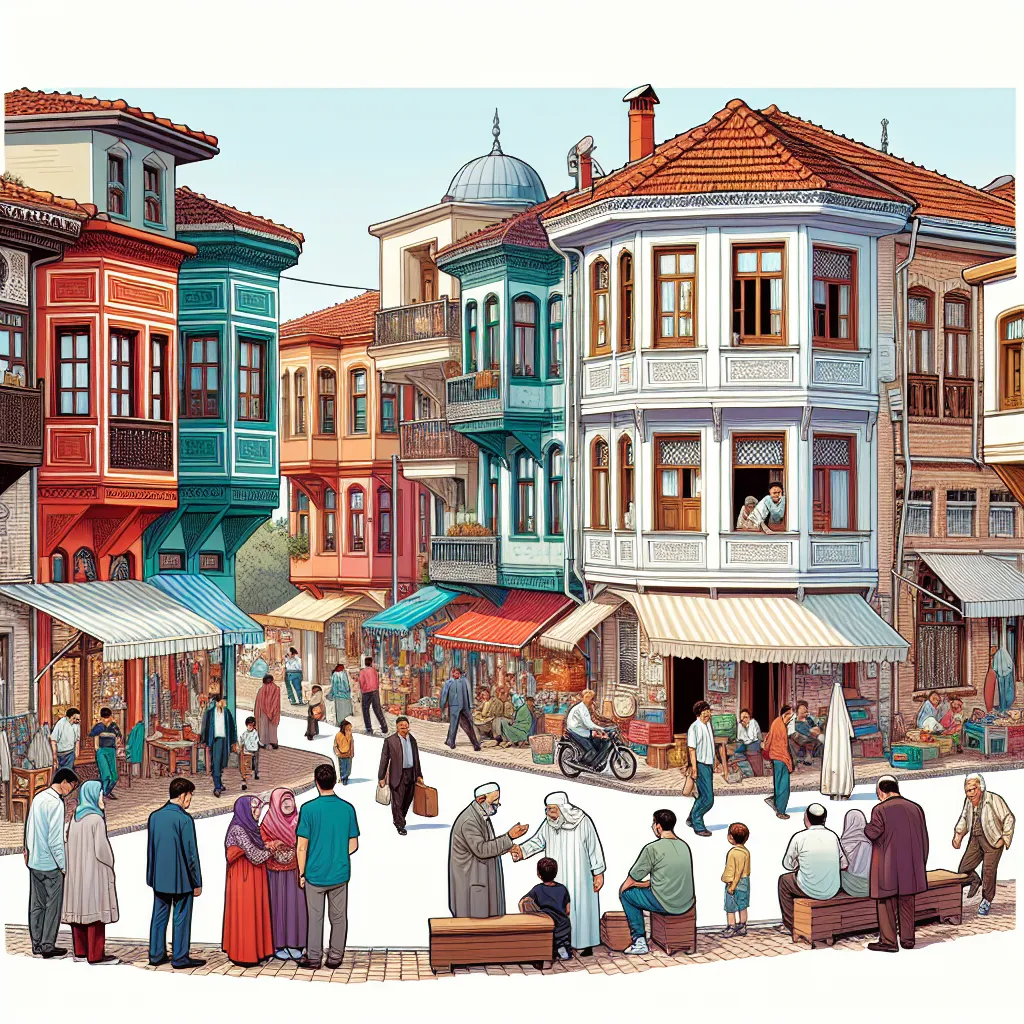In Turkey, the term “meskûn mahal” might seem like another jargon in urban planning. But what if we told you it’s a crucial aspect of how cities are structured? At its core, meskûn mahal translates to “settled area,” signifying spaces where people live and carry out daily activities. This term is not just a label; it’s a fundamental part of legal and planning dialogues, affecting everything from infrastructure to real estate transactions.

Understanding Meskûn Mahal
What is Meskûn Mahal?
Meskûn mahal, directly translated as “inhabited place,” refers to areas where continuous human habitation occurs. Think of neighborhoods bustling with life, from apartment complexes to quaint villages. These are regions acknowledged for residential use, and they form the backbone of urban planning and development strategies in Turkey.
Historical Roots of Meskûn Mahal
The concept of meskûn mahal isn’t a modern invention. It dates back to the Ottoman Empire, where the need for organized urban living led to the establishment of such areas. This historical context laid the groundwork for today’s urban planning regulations, ensuring that development is both structured and sustainable.
Meskûn Mahal in Legal Context
Legal Definition
Under Turkish law, specifically the 3194 İmar Kanunu (Zoning Law), meskûn mahal is defined with precision. It denotes areas used predominantly for residential purposes, where industrial or commercial activities are minimal. Understanding this legal framework is crucial for anyone involved in real estate or urban planning.
Role in Urban Planning
Meskûn mahal plays a pivotal role in urban planning. When developing zoning plans, these areas are prioritized for residential expansion, infrastructure development, and community services. The focus is on creating livable, safe, and well-connected neighborhoods.
Practical Applications
Where is Meskûn Mahal Applied?
- Residential Units: Apartments, houses, and villas fall under meskûn mahal.
- Neighborhoods and Villages: Both urban and rural settlements are included.
- Residential Complexes: Large housing projects in cities are categorized as such.
- Tourist Villages: Even leisure-oriented areas, like holiday resorts, can be meskûn mahal.
- Cities: Urban areas, by default, are considered meskûn mahal due to their dense habitation.
Importance in Real Estate
For those in the real estate sector, understanding meskûn mahal is vital. It impacts property values, development opportunities, and regulatory compliance. AnySqft’s AI platform makes navigating these complexities easier by providing tailored insights into property transactions within meskûn mahal zones.
Challenges and Considerations
Balancing Development and Preservation
While meskûn mahal areas are prime for development, there’s a constant need to balance growth with preservation. Ensuring that infrastructure keeps pace with population growth without compromising historical or cultural sites is a delicate dance for urban planners.
Legal Implications
Misinterpreting meskûn mahal boundaries can lead to legal challenges. Developers must adhere to zoning laws, which dictate what can be built where, ensuring that residential areas remain protected from industrial encroachment.
Summary
Meskûn mahal is more than a bureaucratic term; it’s a concept that shapes our living environments. From historical roots to modern-day applications, it influences how cities expand and thrive. As Turkey continues to grow, understanding and respecting these areas ensures sustainable and harmonious urban development.
Engaging with meskûn mahal effectively, especially through platforms like AnySqft, allows for smarter, more informed decisions in buying, selling, or renting properties. Whether you’re a developer, a homeowner, or a city planner, the concept of meskûn mahal is integral to shaping the future of Turkey’s urban landscapes.
What is Meskûn Mahal?
Meskûn mahal translates to “settled area” in Turkish, referring to locations where people permanently reside. This term is crucial in urban planning and real estate, encompassing:
- Residential Units: Houses and apartments
- Neighborhoods: Urban and rural settlements
- Tourist Areas: Holiday villages and resorts
Understanding meskûn mahal helps navigate legalities in property transactions, ensuring compliance with zoning regulations.
For seamless property insights and transactions in meskûn mahal areas, explore AnySqft. Enhance your real estate experience with data-driven decisions—visit AnySqft today!